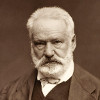“ But each man speaks and acts and lives in accordance with his character, if he is not acting for some ulterior object. And falsehood is in itself mean and culpable, and truth noble and worthy of praise. Thus the truthful man is another case of a man who, being in the mean, is worthy of praise, and both forms of untruthful man are culpable, and particularly the boastful man. ”
Aristotle, Nicomachean Ethics (c. 334 BC - 330 BC). copy citation
| Author | Aristotle |
|---|---|
| Source | Nicomachean Ethics |
| Topic | falsehood truth |
| Date | c. 334 BC - 330 BC |
| Language | English |
| Reference | |
| Note | Translated by W. D. Ross |
| Weblink | http://classics.mit.edu/Aristotle/nicomachaen.mb.txt |
Context
“The boastful man, then, is thought to be apt to claim the things that bring glory, when he has not got them, or to claim more of them than he has, and the mock-modest man on the other hand to disclaim what he has or belittle it, while the man who observes the mean is one who calls a thing by its own name, being truthful both in life and in word, owning to what he has, and neither more nor less. Now each of these courses may be adopted either with or without an object. But each man speaks and acts and lives in accordance with his character, if he is not acting for some ulterior object. And falsehood is in itself mean and culpable, and truth noble and worthy of praise. Thus the truthful man is another case of a man who, being in the mean, is worthy of praise, and both forms of untruthful man are culpable, and particularly the boastful man.
Let us discuss them both, but first of all the truthful man. We are not speaking of the man who keeps faith in his agreements, i.e. in the things that pertain to justice or injustice (for this would belong to another virtue)”
source


